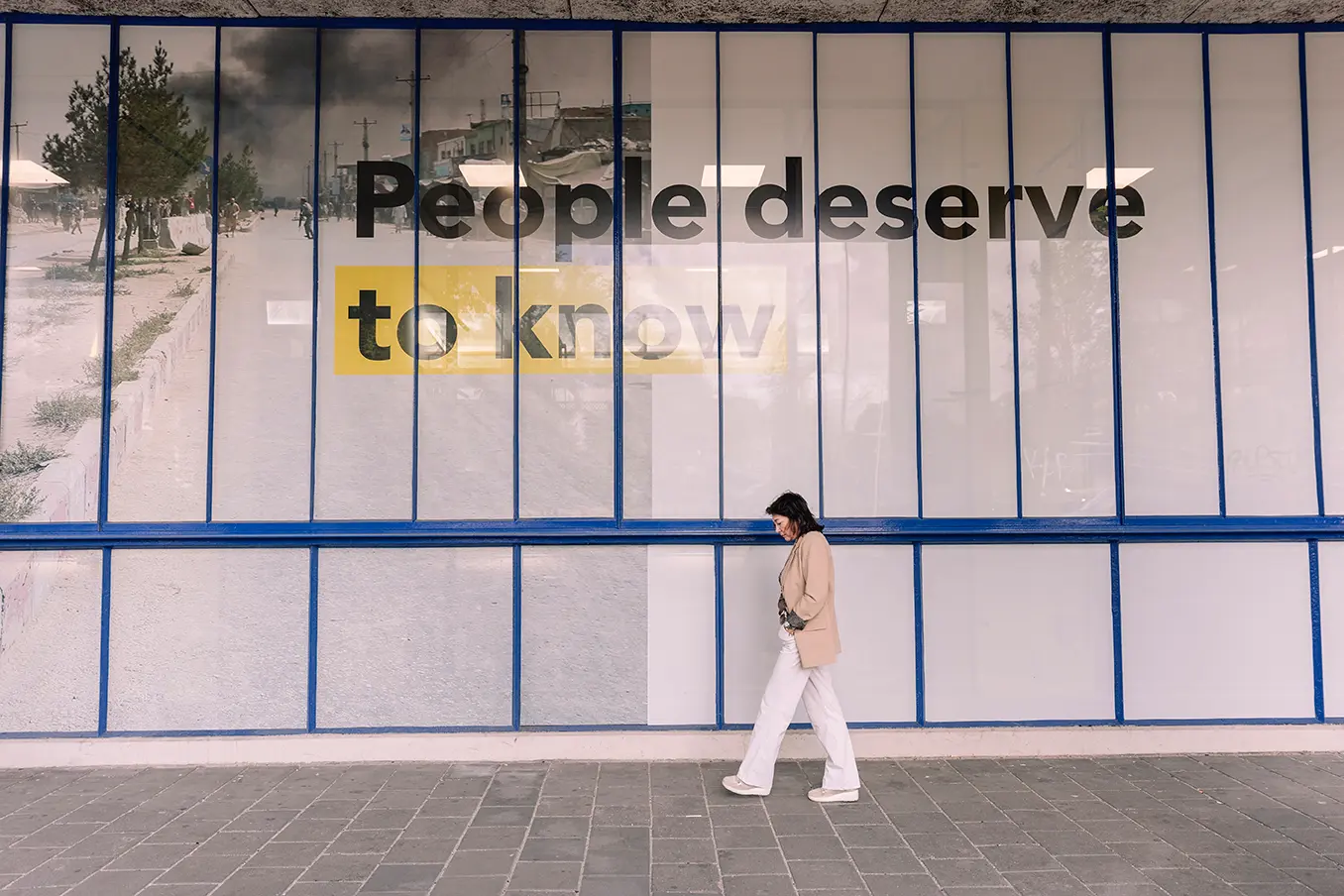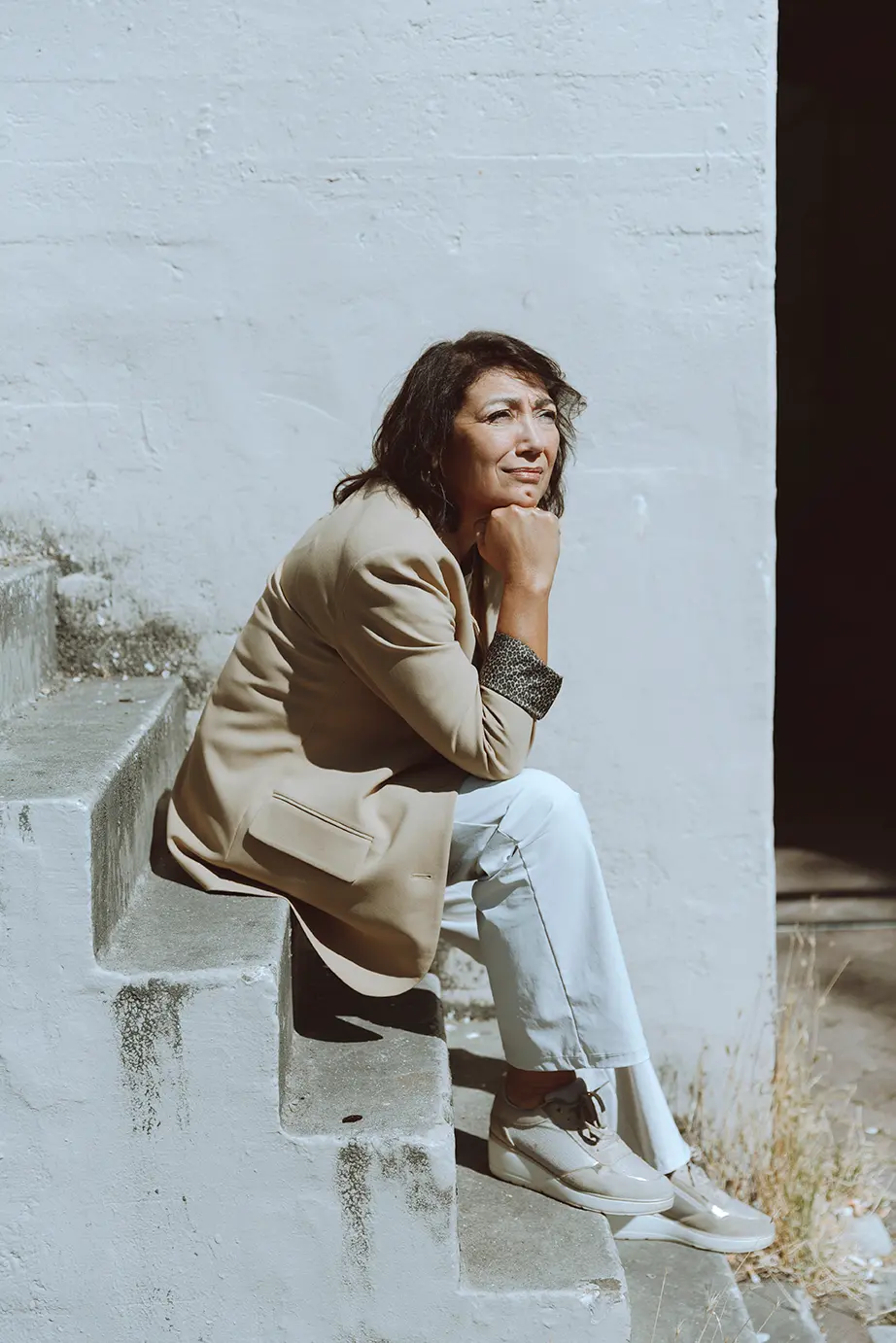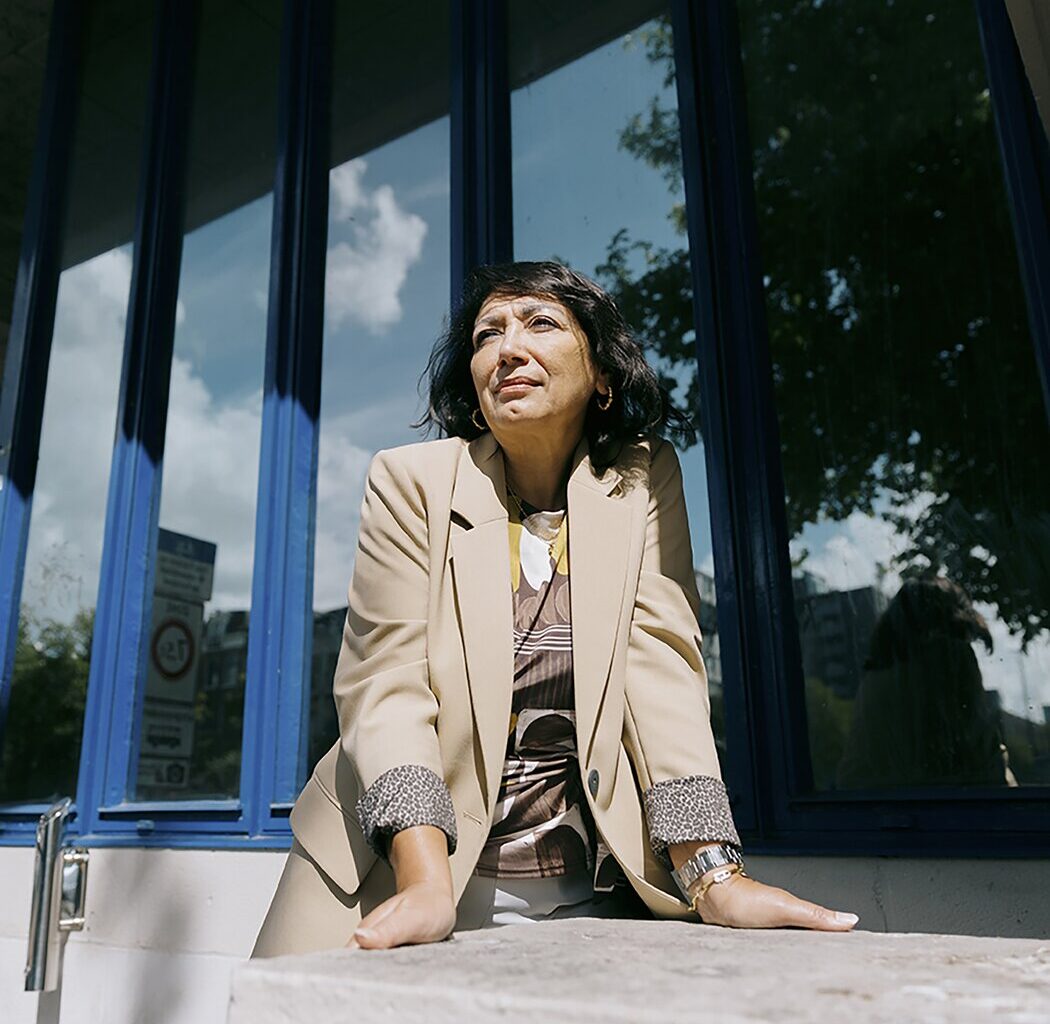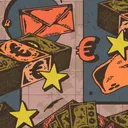When U.S. President Donald Trump started his second term in January with the announcement of a sweeping freeze on foreign development aid, it sent shockwaves through humanitarian organisations and civil society groups the world over.
In the Netherlands, Ruth Kronenburg, executive director of the Dutch media freedom organisation Free Press Unlimited, had been following the news closely.
But the emails that landed in her inbox a few days later – on 25 January – caught her off-guard. They’d been sent from Washington.
Ruth Kronenburg (1964)
- Worked between 1994 and 2007 in management positions at Dutch TV production companies Endemol, TVBV and 625 TV Productions
- Served as interim director for Radio Zamaneh, an independent Iranian radio station broadcasting from the Netherlands
- Acts as executive director at the media freedom NGO Free Press Unlimited, where she was previously director of operations between 2011 and 2022
Programmes that Free Press Unlimited was carrying out in Eastern Europe and Sudan with U.S. government funding had been suspended with immediate effect, along with a project to conduct global research on murdered journalists.
In one fell swoop, 3.5 million euros of the NGO’s funding was frozen.
“It was a huge shock for us and our American colleagues. I had American officials crying on the phone – people who I had worked with for years,” Kronenburg said in an interview with Follow the Money.
“Everything they had built up collapsed when Trump came to power.”
In the months that followed, most U.S. foreign aid projects were terminated, slashing tens of billions of dollars in global humanitarian and development efforts.
The repercussions on journalism worldwide have been swift and significant.
“When independent media disappears in countries in Eastern Europe, Russian propaganda immediately fills the void”
A report co-published by Free Press Unlimited in June – titled Crisis in Journalism – found dozens of independent outlets had been forced to close in countries such as Afghanistan, Myanmar and El Salvador.
What’s more, trusted local news sources – including community radio stations in Sudan and the Democratic Republic of Congo – have stopped operating.
However, Kronenburg has not given up or lost hope.
Free Press Unlimited is lobbying for a chunk of the European Union’s 800 billion euro defence spending plan to support independent media worldwide – from outlets in Ukraine and Georgia to countries in Africa and Latin America.
“When independent media disappears in countries in Eastern Europe, for example, Russian propaganda immediately fills the void,” Kronenburg said. “The EU must step into that vacuum before it is too late.”
“If so much money is going to defence, money must also go to independent media to combat Russian disinformation. That contributes to the security of all European citizens,” she added.
Our journalism is only possible thanks to the trust of our paying members. Not a member yet? Sign up now

How vital is independent media to communities around the world? What are the dangers of losing trusted sources of news?
“I’ll give you the example of Radio Dabanga, which broadcasts from the Netherlands via shortwave and plays a crucial role in war-torn Sudan.
Due to the loss of U.S. funding, the station has had to reduce its editorial staff from 20 to 12 people, and is now only broadcasting one hour a day instead of two.
The reduced broadcasting time immediately led to panic reactions from listeners. They were asking: ‘Where can we get help, where is it safe?’
Radio Dabanga was their only lifeline to the outside world – Sudanese families depend on the station. Access to information can literally save lives.
Separately, our teams at Free Press Unlimited that were investigating cold cases of murdered journalists in Mexico, Brazil and Pakistan have had to pause their work and look for other sources of funding.
It’s a real shame. The evidence we provided has led to the reopening of some investigations in those countries.”
Where do you think independent media outlets will be most affected by the U.S. aid cuts?
“In Ukraine, without a doubt.
Seventy per cent of independent news platforms were funded by the Americans.
They were left without money from one day to the next. This also applied to local radio stations in the provinces close to the front line, which are crucial for local news coverage.
Now that the U.S. money has dried up, journalists are being laid off. It is important that citizens in occupied territories continue to have access to independent information.
The Russians are shutting down all media in the villages and towns they conquer, and journalists are being arrested and deported. Residents then only have access to Russian propaganda channels.
The same thing is happening in Georgia, where a repressive, Moscow-oriented government is in power. Support from the U.S. has been withdrawn and you can see that the pro-Russian propaganda machine is running at full speed.
This is just as Georgia was on its way towards becoming a member of the EU.”
Follow these files
Unfollow these files

Why did Free Press Unlimited work with the U.S. government?
“We have always seen them as good partners.
For Free Press Unlimited, they were one of many donors. The Americans understood much better than we do in Europe that investing in the media is important for the formation and safeguarding of a democratic constitutional state.
They had a long-term vision. Once you had gained their trust, they would enter into relationships that sometimes lasted 10 or 20 years. That was good for stability.
European donors work with shorter terms. That puts enormous pressure on the media and journalists; will there be enough money to continue next year?”
So many media outlets have had to shut down or reduce their coverage due to the U.S. aid cuts. Isn’t it risky to depend so heavily on just one source of funding?
“Dependence on a single donor is not wise, but many media organisations have no other choice. Advertisers are few and far between due to the advent of social media, and in countries at war there are of course no advertisers at all.
In countries with authoritarian regimes, poverty is often a major problem. People can barely feed their families, let alone subscribe to a newspaper or news platform.”

Can private donors step in? What about the Gates Foundation or Open Society Foundations?
“After the freezing of U.S. aid funds, those large private foundations announced that they wanted to focus on the U.S. itself when it comes to supporting the media.
They believe that the country needs more help right now. And there weren’t many private donors supporting the media anyway.
At the start of the year, Facebook announced that it would stop fact-checking, and Google News Initiative no longer funds projects related to misinformation and disinformation.
This has become a very sensitive topic because the Trump administration has banned everything related to it.
There is a real lack of urgency in Brussels. I don’t like that
Private foundations – as I hear from colleagues – want to know what the U.S. government will do next.
New legislation may be introduced that will remove the tax benefits they currently enjoy. Some are looking into the possibility of moving to Canada.
They are all uncertain about what will happen and are waiting to see how things develop.”
Is the EU helping to address the information vacuum emerging in countries such as Georgia and Ukraine?
“No, not at all. It takes a very long time for things to get moving in Brussels. That really frustrates me.
Although the EU is trying and willing, the majority of EU funds are already allocated, and what’s left for rapid response is too little to fill the gap.
Nobody has enough money, and that won’t change unless specific funds are dedicated to this. But, sadly, the new EU budget does not show any signs of that changing.
With no one filling the gap, the remaining independent media – if they survive – will be weakened and will not be strong enough to combat disinformation and serve as watchdogs.”
With that in mind, how is your lobbying going? What are you asking the EU for?
“We are asking for 150 million euros of that enormous amount [the 800-billion-euro defence spending plan] to support media platforms worldwide.
This includes media organisations in Ukraine and Georgia, but also in Africa and Latin America, which have run into difficulties due to the loss of U.S. aid and budget cuts in European countries. Surely 150 million isn’t that much?
Not long ago, we had a meeting with senior EU officials. That was a first step, but no money has been allocated yet.
The next meeting is in mid-September, when we will be able to present our case again.
But by then, months will have passed. There is a real lack of urgency in Brussels. I don’t like that.
Because you know that when there’s urgency, anything is possible.”

